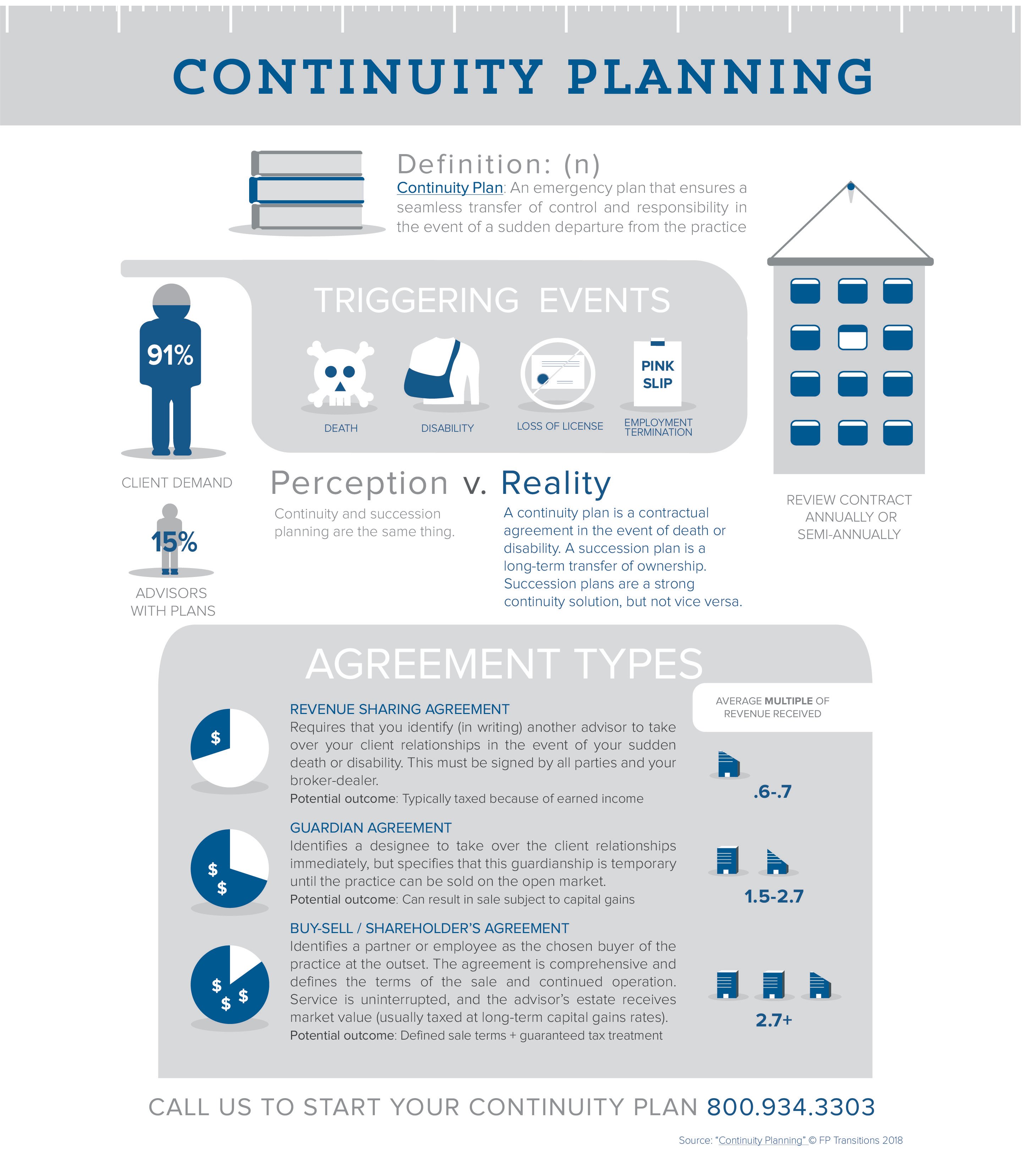
The foundations for FP Transitions were laid in 1999, and that makes our company officially 20 years old this year. I founded this company thinking that I knew a lot more about running a business than I actually did at the time. Armed with a law school diploma and a lot of energy and drive, I thought I was ready to conquer at least a small corner of the business world. Turns out that running a business takes experience and business knowledge.
Along the way, I picked up an important axiom from a local legend who said, “Don’t confuse activity with achievement.” He was right, but it took me a long time to understand the difference. In retrospect, the first ten years of our company were characterized with a lot of activity; the last ten years is where the achievement took place. The difference maker for us was hiring an outside CEO, Brad Bueermann, to come in and help us turn our activities into achievement on a national scale. Until then, I confused being very busy with being very successful, or at least constantly being on the verge of success. Everything revolved around me and the lawyer in me silently rejoiced. But this wasn’t a good, long-term model because eventually I ran out of time and energy. And I got older!
Advisors often mistake activity for achievement too, thinking that their one-owner practice that is 90% or more fee-based and that grows steadily at 10% or more every year is proof that they have built a business and that success has been achieved. I see a lot of independent advisors building what I call “books” and “practices,” but not very many building sustainable businesses. What I’ve learned over the past twenty years is that, while it is incredibly satisfying to have a practice that revolves around the founder, that isn’t a durable model, and it is not “a business.” At some point, if a practice is to outlive its founder and provide services to the clients for their lifetimes, and not just for the length of the founder’s career, significant changes need to be implemented, and the sooner the better.
Early on, we grew fast and I became totally focused on our top-line success and growth rate. But there came a time when it was clear that without strengthening the foundational aspects of our business, it would never grow past a certain point. I had to move myself out of the center of operations and learn to build and run a business like a shareholder, not like the star attraction. Making myself a part of a stronger, more diverse, and younger team of professionals was hard, but very necessary – more than just changing my leadership style, we had to change the culture of our operation and, frankly, that was beyond my skill set. So, we brought in outside help – people who knew things that I didn’t – and that made all the difference.
Read More
Topics:
Business Growth,
Business Value,
Next Generation,
Sustainability,
Building Your Team,
Enterprise

Looking back over the past few decades, you can easily spot the trends and physical changes in our industry. Since 2000, when FP Transitions formally opened its doors, I’ve seen our profession, especially in those working under an independent broker-dealer or hybrid model, steadily shift to fee and advice-based solutions. Early on, most practices that we represented were made up primarily of transaction or non-recurring revenue; today advisors build businesses with a focus on fee-based income streams. Independent insurance companies are evolving as well with a sophisticated and wide array of recurring revenue.
Along the way, these practices have become not just more valuable, they are also physically larger and stronger. This requires more qualified people to analyze, give advice, produce revenue, as well as the adjunct talent to support these professionals. Looking forward, we see an ever increasing need to recruit and retain the best talent in the industry to support not just where your practice is today, but where that growing business will be ten years from now. Everyone has read about the need for recruiting; but the story has shifted in the past few years and will continue to do so going forward. Rather than simply hiring next gen talent as the need arises, this could well turn into a fierce competition to adequately reward and retain that talent as more and more advisory businesses reach the next level of success and draw upon a talent pool that has scarcity written all over it.
Read More
Topics:
Business Growth,
Enterprise Strength,
Next Generation,
Building Your Team,
Equity Pathways
“Mergers & Acquisitions” is a phrase that gets used off-handedly, but those are substantially different transactions. An acquisition itself is a complicated enough process. But in a merger there are the additional components required to wholly integrate two separate businesses into one surviving entity. Those complexities are why each merger engagement presents circumstances and challenges unique to the companies, and individuals, involved. Those complexities can be solved, but the path to the solution is often not apparent to the inexperienced or unwary.
There are threshold issues a business owner should consider before jumping into the process of merging his or her business with another business. In the video below, two of our transactions experts, General Counsel, Rod Boutin, J.D. and Assistant General Counsel, Ericka Langone, J.D., discuss some of these important considerations.
You and the rest of the ownership team have decisions to make about the merger process itself, as well as decisions to make about the business you’ll create. These details should not be left for discovery and sorted out mid-process, but should be understood and planned for before implementing your merger strategy.
FIT The importance of finding the right merger partner(s) might seem like a given. But, before you make the decision, really consider what makes a good fit. After all, you’re going to have to work with these partners for many years to come. A particular merger combination might make sense financially, but it has to make sense culturally if it’s going to work–and if the business is going to thrive.
Read More
Topics:
Succession Planning,
Business Growth,
Mergers,
Continuity
Completing a formal valuation is step one. Step two is securing that value with a continuity plan.
Having a formal, written continuity plan in place for the unexpected exit of an owner–especially if they’re the only owner–is paramount to ensure your practice and its clients are protected.
Annually updating the plan is just as important as the signatures on the document itself. Your plan and contingencies must evolve along with your business. An up-to-date and accurate agreement will prevent confusion in an already emotional and chaotic situation should the plan need to be implemented. Each year you must account for any business growth (or decline) as well as changes in compensation, personnel, client base, and other practice details.
The infographic below breaks down some continuity basics and options.

click to enlarge
Ensure your business is safeguarded against the unexpected. Explore FP Transitions' Continuity Planning services or call 800.934.3303 to update (or establish) your continuity plan.

Read More
Topics:
Continuity Planning,
Business Growth
In 20 years of helping financial practices transition, we have closed over 3,000 successful deals–both on the open market and through privately organized transactions. Each deal is different, but we have been able to identify certain key traits and behaviors that facilitate the most successful acquisitions.
Read More
Topics:
Acquisition,
Business Growth,
Testimonial

Business succession from parent to child is an age-old practice in human history, from humble cobblers to royal families. The practice stemmed from necessity—parents taught their children the trade they knew in an effort to teach them to survive. What started from necessity became custom and, eventually, tradition. In many professions, this tradition is still a point of pride. Advisory business owners will often see this as the best path to build an enduring practice and retain their client base.
For some advisors, the idea of passing the business to a family member is their preferred choice and seems to be the easiest path forward. One day, the founder steps out and the child steps in. Most advisors even consider gifting their business to their children, with or without a written contract, rather than selling it to them. Here are some simple reasons you should think twice before taking this route.
The IRS Considers Your Business to Have Value
Many advisors think, “I’ll just give my children the business when I’m ready to retire.” We hear this all the time from founding owners whose children work with them in their business. Be wary, though – although certain types of gifts are exempt from this rule, generally speaking, a gift whose value exceeds the annual exclusion is taxable to the giver of the gift and likely will be applied against the giver’s lifetime estate tax exemption.
Read More
Topics:
Succession Planning,
Business Growth,
Family Business,
Tax Regulations,
Next Generation,
Sustainability

In many professions and in most businesses, succession planning and sustainability are not pressing issues. Most people don’t need a multi-generational dentist office, for instance. Who really cares if the neighborhood hamburger stand or your favorite restaurant has a succession plan? But in the financial services and wealth management industry it’s different.
Advisory clients have a clear–and not unreasonable–expectation of receiving continuing advice and investment management tailored to the length of their lives, not to the length of their advisor’s career. Being an independent financial professional necessarily indicates a commitment to the future; the element of planning implies that a financial advisor is starting something that will not and should not end with his or her own career.
Consider the average successful financial advisor is in his or her mid-50’s. At that age, the owner/advisor will likely continue to work for another 15 to 20 years, even as time in the office gradually diminishes over the last half of that plan. At this time, clients are transitioning into retirement and are likely to need more financial guidance, not less. The term “succession gap” refers to the time difference between a single financial advisor’s career length and a client’s wealth cycle.
Read More
Topics:
Succession Planning,
Business Growth,
Next Generation,
Sustainability

Working at a financial services firm can be a rewarding choice for the next generation of advisors. You can have real impact in people’s lives as you help clients set their financial goals and see them succeed over time. It is an environment where there is constant change and continued opportunities for learning. And, the financial services industry offers a lot of choice in terms of specialization, type of firm and location. It is important to find the right company and team to work with to put your career on the right path.
During a job interview with a potential firm you will have the opportunity to ask your own questions about the business and the team. Asking the right questions shows you are intelligent and engaged, in addition to providing you with critical information to help you make the right choice for your career.
You will, of course, have questions to ask specific to your own goals and concerns, but here are three relevant to every advisor's career that should be on your list:
Read More
Topics:
Business Growth,
Next Generation,
Talent Recruitment
It’s been a while since “keeping it in the family,” assumed your literal family. Yet, many advisors approach succession with pride when they have the opportunity to pass their advisory legacy to a son, daughter, niece, cousin, or other relative.
Choosing a successor who is a part of your blood family doesn’t mean the succession process becomes 10 times easier; it doesn’t mean you just hand over the keys one day with a, “See ya later, kid. Don’t burn the place down.” It requires the same careful planning and communication to ensure ownership of the business ends up in the right hands.
Tom and Paul Morrone of US Wealth Management in North Haven, Connecticut have always been a close father / son unit, but that didn’t automatically mean that Paul would step into his father’s shoes one day. Instead, he forged his own path before recognizing the business and the life his father had built was exactly what he was striving for. And still, ownership wasn’t just handed to him.
Tom insisted that Paul EARN ownership, and together they sought help for the succession process. It wasn’t a matter of trust. It was a matter of making sure they hadn’t missed any detail, and that they had the most beneficial path for both of them.
Below, watch the Morrones put their journey in their own words.
Read More
Topics:
Succession Planning,
Acquisition,
Webcasts,
Business Growth,
Testimonial,
Client Success,
Family Business,
Next Generation
In the M&A space for the financial services industry, everyone wants to acquire. Few advisors, however, take the time to sit back and think about what they want from the acquisition: what kinds of clients and assets would complement the existing business, what new staff and advisors are required to run a larger book of business, and what will the new business look like post transition.
In our experience, the advisors who are most strategic are the most successful.
Michael Lutz of Legacy Financial Strategies in Overland Park, KS understood that acquisition was a viable and smart path for growing his business. He wasn’t just looking to gobble up as many practices as he could, however, because he also understood that if he chose his targets strategically, he could not only grow his business but he could ensure its legacy by using acquisition as a vehicle to recruit Generation Two talent to his firm.
Using FP Transitions Enterprise Consulting to develop and execute his internal succession plans, Michael offered equity, and with it a modicum of control, to recruit smaller advisors with existing books–and new advisors without–to Legacy Financial Strategies and created his “growth machine”. These mergers and additions increased the value of what they all now own and are committed to continue building.
With the right strategy, instead of just acquiring clients and assets, a “growth machine” is created, and the foundation for future growth is built with succession through acquisition.
Watch Michael’s story below.
Read More
Topics:
Succession Planning,
Acquisition,
Webcasts,
Business Growth,
Testimonial,
Client Success,
Next Generation







